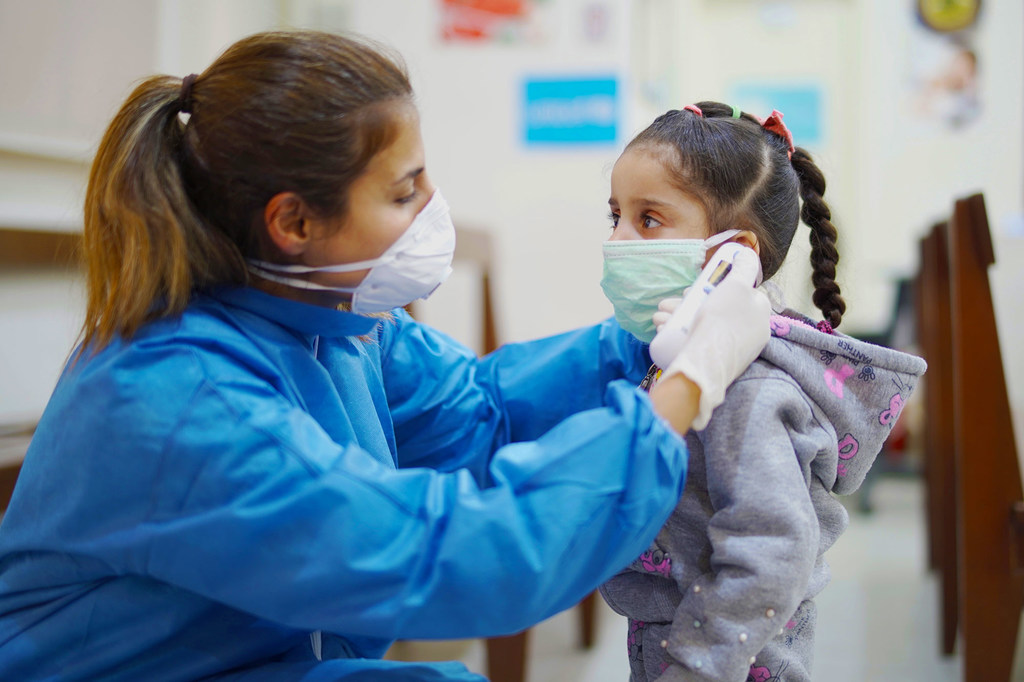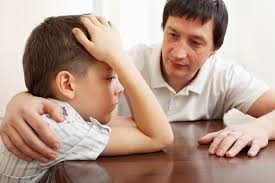Coronavirus: 7 Ways to Help Children and Teens Through the Coronavirus Epidemic

The outbreak of the novel coronavirus disease (COVID-19) has brought a lot of anxiety and uncertainty to all of us, including children and adolescents. In this stressful period, no matter how old the children are, they all want to understand three basic questions:
- Am I safe?
- Are the people who care and take care of me safe?
- What impact will this situation have on my daily life?
As parents and caregivers, we need to talk to children about COVID-19 and solve their anxiety about the above issues. Here are seven tips for you to communicate with children of all ages to help them maintain emotional stability during this crisis. A guide is also included to help you tailor conversations for children of different ages.
Guides for kids of all ages
1. Control your own anxiety
- Disposal Protective Clothing for Medical Use
- How does ZeroVirus protect us from virus?
- N95/KN95 Protective Mask with Elastic Ear Loop
- Surgical Mask with Elastic Ear Loop 3 Ply Breathable and Comfortable
- ZeroVirus Space Portable Sterilization Bar
Many of us are very worried about the current situation and living in uncertainty is not easy. However, anxiety is “contagious.” Even if you try to hide, your child can feel your nervousness. So, how do you stay calm when you are worried? Here are some suggestions that may help you:
Get the most credible information possible. Pay attention to fact-based, useful virus-related information. Avoid contact with the endless stream of social media information, because it will be mixed with misinformation, and there are continuous so-called explosive news headlines, which will exacerbate your concerns. Stay tuned for the latest notifications from your child’s school, state, city, or town. You can best control anxiety if you know the guidelines that protect you and your loved ones. These guidelines include washing hands, cleaning surfaces, using disinfectants, and whether you or your family need to be isolated, in case quarantine is required If so, what supplies should be available at home.
Have a chat with the people who support you. This person can be your partner, parent, friend, spiritual leader, or any adult you can trust.
Take care of your own health. Ensure adequate sleep and exercise, and use other methods to reduce anxiety, such as meditation, yoga, listening to music or watching TV shows.
If your child asks if you are worried, be sure to answer truthfully! If you don’t tell the truth, they will know. You can say: “Yes, I am very worried about this virus, but I know how to stop the virus from spreading. If one of us is sick, I can also take care of my family.”
2. Get close to your children and understand what they know

Most children have heard of COVID-19, especially school-age children and teenagers. They may have seen some news on the Internet, on TV, or heard a friend or teacher talk about the disease. Other children may have heard you talk about this disease. There is a lot of wrong information outside, so don’t assume that they understand the real situation, and don’t assume that the information they have obtained is correct. You can ask some open questions:
- What have you heard about the coronavirus?
- Where did you hear it?
- What is your main anxiety or worry?
- Can I help you answer any questions?
- What are your thoughts on the coronavirus?
3. Confirm their feelings and concerns
Children may have various reactions to COVID-19. Some reactions may be realistic, while others may be exaggerated. For example, if the child’s grandmother lives in a nursing home, they may have heard that older people get sicker than healthy people and young people. At this time, you must be able to admit this reasonable concern, but you must rest assured that grandma has the best medical care to deal with the disease. Or, children may be afraid that animals, such as their beloved pets, will be infected with the virus. In the same way, please take these feelings of your children seriously, and let them be assured that dogs and cats are not infected with the virus, so there is no need to worry.
4. Willing to answer questions and provide new information
The epidemic may last a long time, so one conversation is not enough. In the beginning, children’s emotional reactions will outweigh their thoughts and worries. As the epidemic continues to develop and your children receive new information, they will need to talk to you again. Let your children know that they can talk to you about their concerns or concerns at any time. It is also a good idea to keep in conversation with them regularly, because they may not come to you when they are scared.
When you provide your child with new information, don’t take it for granted that they fully understand what you are saying. Ask them to explain to you in their own language. This is a good way to know whether the child understands correctly.
5. Enhance their abilities through role models
An important part of virus prevention is to wash your hands, cover your cough or sneeze with a sleeve, and wipe your nose with a tissue before discarding it. Try not to touch your face with your hands, do not shake hands with others or make physical contact, and wipe the surface with at least 60% alcohol.
We must demonstrate these behaviors first, so that children can have a good example. It’s a good idea to ask your child to sing “Happy Birthday” twice (about 20 seconds) when you wash their hands together so they know what to do when they wash their hands. At home, wiping all surfaces after dinner helps to get everyone involved in prevention work. For older children and teenagers, use other methods instead of high-fives or fist touches, such as touching elbows, bowing, or adopting Mr. Spock’s “Blessed and Longevity” Vulcan salute.
When you see children maintain good hygiene behavior, praise them! Emphasize that they are not only taking care of themselves, but also helping prevent the spread of germs to others.
6. Give comfort
The child may worry about how to overcome this difficulty. Let them think about other situations they felt helpless and fearful before. Children like family stories, and these story descriptions carry a lot of their emotional weight. You can try to say something like: “Remember the hurricane hit a tree that fell on the apartment?” or “Remember when the water pipe burst in the house and our house was flooded?” Remind your children that you have experienced it before In difficult times, although everyone was in distress at the time, they worked hard to overcome the difficulties. Relive these stories will help shape the resilience of the whole family and bring hope to the family.
7. Don’t blame others
In times of stress, when we feel helpless, we tend to blame others, or we become more worried, even if it is not necessary at all. This behavior may humiliate others and be harmful to certain groups-in the case of COVID-19, especially for Asians and those who have traveled recently. When terrible things happen, the last thing we want our children to do is to pass the responsibility to others, whether intentionally or unintentionally.
When you ask your children how much they know about this virus, pay attention to whether there is content that discriminates against a certain group of people, and then solve the problem in your conversation. Make sure that your own actions and conversations do not reinforce negative stereotypes.
Conclusions:
The 7 suggestions above are from Gene Beresin (MD), the executive director of the Adolescent Mental Health Division at the Clay Center at Massachusetts General Hospital and a child and adolescent psychiatrist at Massachusetts General Hospital. All are based on the American Culture.
The new coronavirus is not a joke, everyone must take it seriously, otherwise, it is very likely to attack the body heath. We long for a free life, but without a healthy body, without life, what can we use to enjoy a free life?
We all love our children, and the new coronavirus epidemic is the time to test our love for children.
